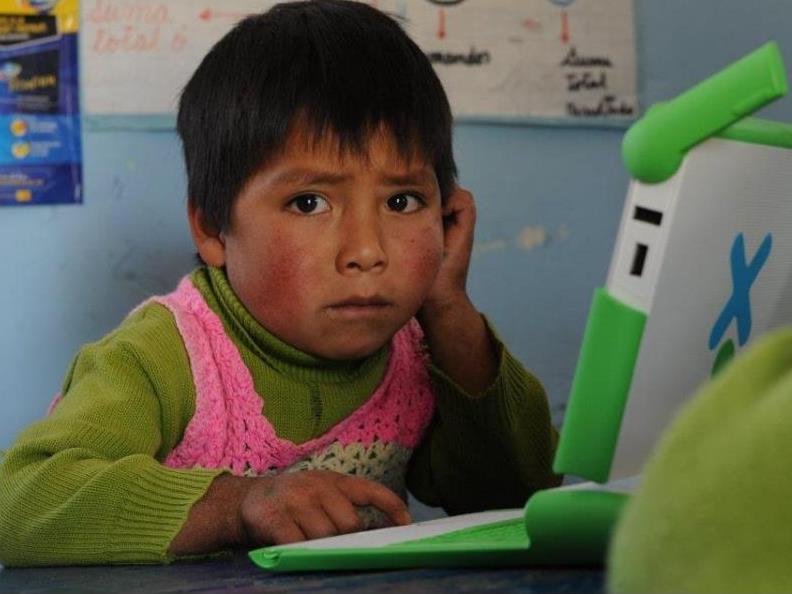The internet may be considered a staple of modern existence, its usage widespread to the point of saturation; however, it is easy to overlook that this is not the case in much of the world. In the planet’s poorest and most remote regions, the technology that now underpins the most drastic change in human communication and experience over the past three decades is largely an elusive but alluring concept. While the lives of Western children are shaped by their incessantly-online status, their counterparts in other nations have only seen a computer in pictures, and have never used one.
Making his second feature after The Last Survivor, Michael Kleiman clearly espouses this juxtaposition in Web in its opening. First, the film commences in Antuyo, Peru, a town with 100 people, no electricity or running water, and one road. A school class of eager young minds admit their lack of familiarity with computers and the internet, before being gifted with a laptop each. The joy over their new toys is obvious, as is their curiosity. In an instant, the world opens to them, its immense stores of information and its silly videos included.
Suddenly, a series of web clips play, exploring the broader concept and topic. Swiftly, Bill Clinton’s 2004 speech to Cornell University on interdependence begets an Amazon purchase of Robert Wright’s book, Nonzero, which inspires Google searches of related subjects, then Facebook posts, emails and more. Kleiman returns to this tactic throughout the film, employing information available online to demonstrate its importance. How is the internet changing the way we connect, he asks. What will the world be like when its entire populace is connected, he ponders.
Web cycles between these two modes of data delivery for its duration: showing the reality of connecting the internet in disadvantaged areas, then providing context to the disparity between first and third world access. The One Laptop per Child project provides the documentary’s motivation, as Nicholas Negroponte’s initiative endeavours to deliver on its stated aim. In Antuyo, youngsters such as Bernardo and Roy beam bright smiles as they become immersed in their glowing screens, the laptop’s gleaming plastic casing in stark contrast to the rock and dirt that surrounds them. Their enthusiasm to learn about things outside their village is obvious. Indeed, even their father asks, heartbreakingly and to camera, if life where Kleiman is from is the same as his.
Interviews with experts such as Wikipedia’s Jimmy Wales and ‘Father of the Internet’, Vint Cerf, as well as examinations of social media and other online applications, only underscore what the audience knows: the chasm between the unconnected and the connected is vast, even as technology attempts to narrow the gap. Though the feature focuses on education, access and community, not everything it offers on the comparison is positive. Explorations of the negative repercussions of online communication in general, its distance and devaluing of face-to-face relationships, and of the change and potential homogeneity that it brings to those accustomed to its absence, including the eschewing of tradition, are also provided.
Accordingly, Web aims to be thorough and thoughtful, and succeeds in enlightening and inspiring further questioning in tandem. It overflows with data and discussion, with touching footage of the desire for and impact of progress in Peru through its personal focus, and an understanding of the wider implications in its incisive presentation of information. Of course, no one film can encompass the enormity of the topic, and any that tries risks clutter, just like in the internet itself. Thankfully, Kleiman and his documentary offer a more than competent – and always engrossing – effort at achieving the former and avoiding the latter.
Rating: 3 ½ out of 5 stars
WebDirector: Michael Kleiman
Peru / US, 2013, 83 mins
Transitions Film Festival
http://www.transitionsfilmfestival.com/
15 – 23 February
Actors:
Director:
Format:
Country:
Release:





